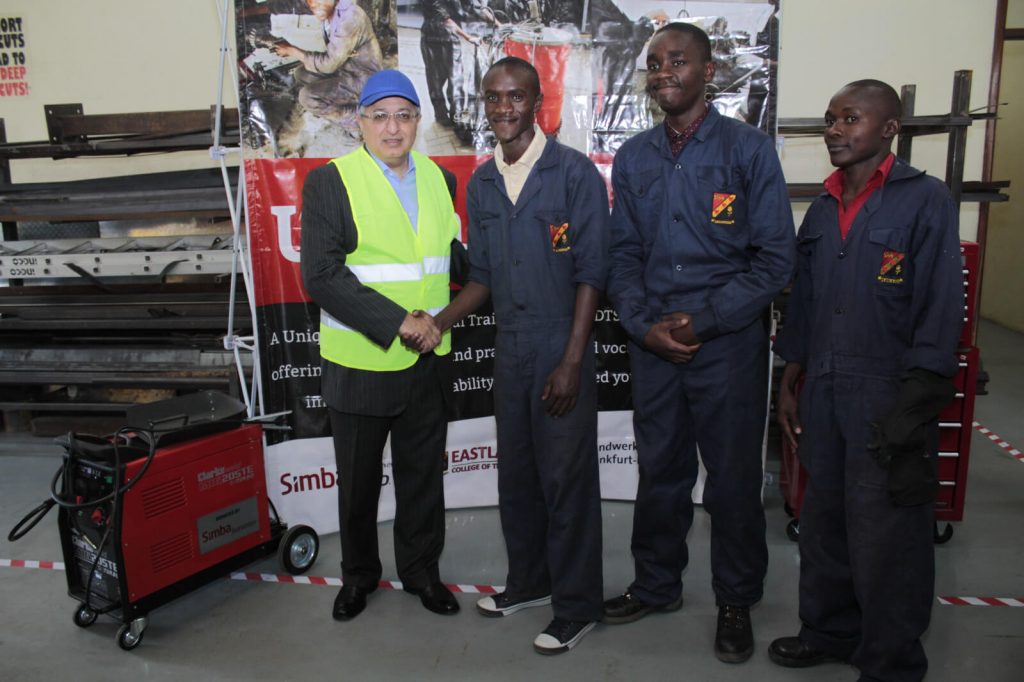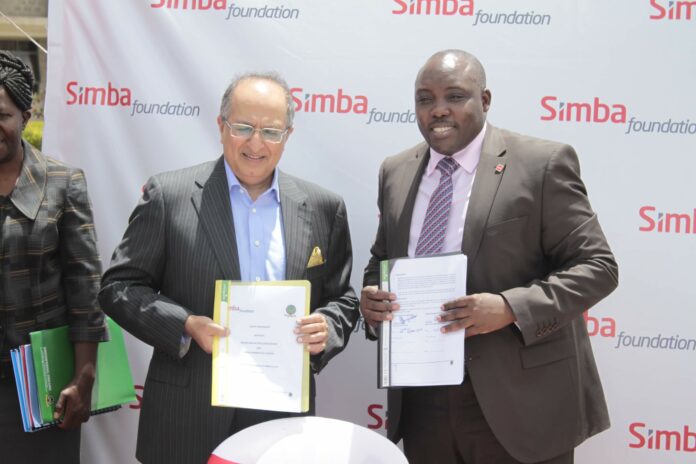Simba Corporation, an integrated business group with controlling interests in diversified fields such as motor sales and service, hospitality, investment and financial services has today unveiled its CSR arm, the Simba Foundation.
The Simba Foundation has a mission to provide a platform to under privileged youth by equipping them with technical and business skills and to build on Simba’s heritage in providing healthcare interventions through partnerships which focus on 3 pillars: Health, Education and Road Safety.
The Foundation has put in an initial investment of over Ksh 10 million shillings into its flagship project under the education pillar to provide technical and entrepreneurship skills training to underprivileged youth. The project dubbed “Unda Future” will be run in partnership with The Eastland’s College of Technology and St. Kizito Institute of Vocational Training. The project is a unique automotive Dual Training System (DTS) aimed at offering more practice-oriented vocational training to improve the employability of marginalized youth in Kenya.
This comes at a time when the government has taken the leadership in spearheading reforms within the TVET sector, as evidenced by its recent push to equip various vocational institutions with the necessary facilities to help equip learners with knowledge that meets the demand of the current economy.
Speaking during the launch, Simba Corp CEO Adil Popat said that the main objective is to provide the beneficiaries with an industry driven syllabus that will in the end meet the rising demand for automotive technicians possessing the skills required to meet the growing needs and emerging industry trends.
“This is a great moment for us, the foundation team worked out a comprehensive youth empowerment programme informed by our belief that the youth hold the greatest sway in the pace and trajectory of the future of Kenyan economy. This flagship project is the first of its kind in the motor industry, it gives the continuing students the opportunity to gain industry experience and on-the-job training through periodic apprenticeships,” said Mr. Popat
The “Unda Future” project entails two courses: Automotive Technology and Automobile Body Works Technology, presented in three levels (grade III, II and I) and examined by National Industrial Training Authority (NITA) at the end of each level. The program targets both girls and boys and education financing options are available to those from marginalized backgrounds.
Under Health, the foundation will partner with health institutions to implement sustainable health programs aimed at saving lives and improving the well-being of communities. On Road safety, the foundation will strive to minimize communities’ vulnerability to road disasters through creation of proactive intervention programs that prevent or decrease the effects of road disasters.
Currently there are 30 students pursuing the automotive Technology and 30 studying Automobile Body works technology. 30% of our students under the Unda Future project are female.
For years, auto mechanics have been overwhelmingly male. Times have changed, Today’s cars are different, and they require different approaches to servicing them. Mechanical systems that once required more muscle than intelligence to fix have become far more reliable and less needy of a mechanic’s attention.
Auto service is now a brain game. Auto service departments increasingly need people with technical training in electronics, and the physical barriers women may have once felt when entering the field have largely disappeared.









